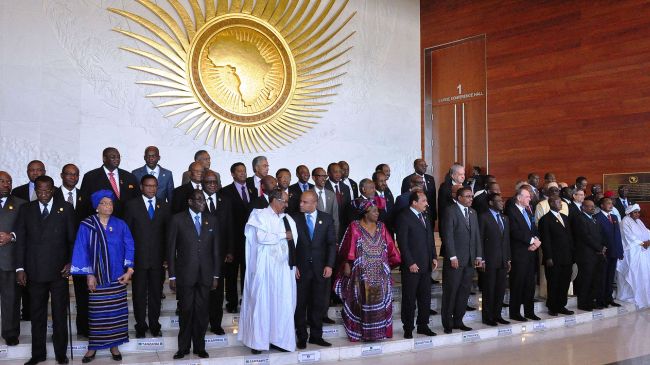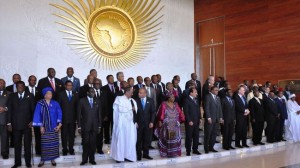Everybody is thrilled that the 1st ever Ministerial Conference on Immunization in Africa had taken place for the 1st time on February 24-25 in Addis Ababa, Ethiopia. It had the theme “Toward Universal Immunization Coverage as a cornerstone for health and development in Africa”. It will be a meeting of ‘who’s who in Immunization’ involving African health and finance ministers, advocates, technical experts, policymakers, donors and journalists to exploit the opportunity to demonstrate their commitment to expanding access to vaccines across the continent.
The conference website revealed that “universal access to immunization is at the forefront of enabling Africa to reach its full potential – by improving health, driving economic growth and empowering future generations. Immunization is one of the most cost-effective solutions in global health, with clear benefits for health and development. Vaccines are a major reason child deaths in Africa fell by more than half between 1990 to 2012 saving millions of lives.”
On Tuesday 23rd February 2016, civil society organizations (CSOs) had held a side event to brainstorm on how to support the implementation of the Global Vaccine Action Plan (GVAP) and already the Civil Society Declaration for equitable access to Immunization in Africa has being shared with many groups have already sign up . I will highlight below key content of the declaration while next week I will talk about the conference as a whole with its astonishing recommendations.
The CSOs declaration observed that ‘one of the most successful and cost-effective public health interventions, immunization programs globally have saved the lives of more than thirty million children in the last 15 years alone according to the World Health Organization. Recognizing the critical role and impact of immunization, the global health community, in partnership with World Health Organization, declared the period of 2011-2020 the “Decade of Vaccines” and established a vision to accelerate the public health impact of global vaccination by 2020: the Global Vaccines Action Plan, ratified by 194 United Nations member states.’
It also emphasized that impressive progress has been made over the last decade in improving immunization coverage across the region, including the remarkable elimination of transmission of wild poliovirus. However, this progress has recently stagnated and the key targets of the Global Vaccine Action Plan remain off-track.
CSOs call on the governments of all countries at the meeting and across the region to commit themselves to the following;
- Ensure that all residents of their country, especially the poorest and most marginalized, have access to immunization and other essential health services to attain universal immunization coverage goals by 2020.
- Strengthen health systems that deliver immunization services, especially through ensuring a strong health workforce in reach of all communities, sufficient and sustainable financing, and a strong supply chain for uninterrupted purchase and delivery of vaccines in sufficient quantity to meet the population’s needs through increasing the national budget dedicated to health by 2020.
- Ensure that no financial barrier prevents a child from accessing life-saving vaccinations by committing to and implementing universal health coverage policies.
- Adopt lessons learned from the effort to eradicate polio from the continent, and ensure that the investment in polio eradication is effectively leveraged to support immunization and other health goals.
- Reach all six of the targets agreed to under the Global Vaccines Action Plan by 2020, including achieving full coverage of the Diphtheria, Tetanus, Pertussis (DTP3) vaccine and all vaccines in national immunization programs.
- Engage and support civil society to contribute to the reduction of immunization inequity, including by raising community awareness and public demand for immunization programs.
The call wasn’t all about engaging government but also a pledge by the CSOs to take action on bridging the gap on immunization to;
- Support government efforts in delivering vaccination, ensuring that these services reach communities in hard-to-reach locations and marginalized communities.
- Support efforts to increase the acceptability and uptake of vaccines in these communities through demand creation activities.
- Deliver immunization services in emergency and crisis contexts where appropriate;
- Assist governments to improve the performance and management of the systems that deliver vaccination.
- Participate in the elaboration, implementation, and monitoring of health and immunization policies.
- Hold governments accountable to deliver the immunization services needed by their entire populations, especially the poorest and most marginalized members of society.
- Raise the voice of communities by supporting and empowering them to participate in immunization processes and accountability mechanisms.
- Hold donor country governments and multilateral institutions accountable to fulfil the pledges they have made to deliver funding and support for immunization and ensure this is aligned with national health plans and priorities.
All comments to Dr Aminu Magashi Publisher Health Reporters (healthweekly@yahoo.com)





